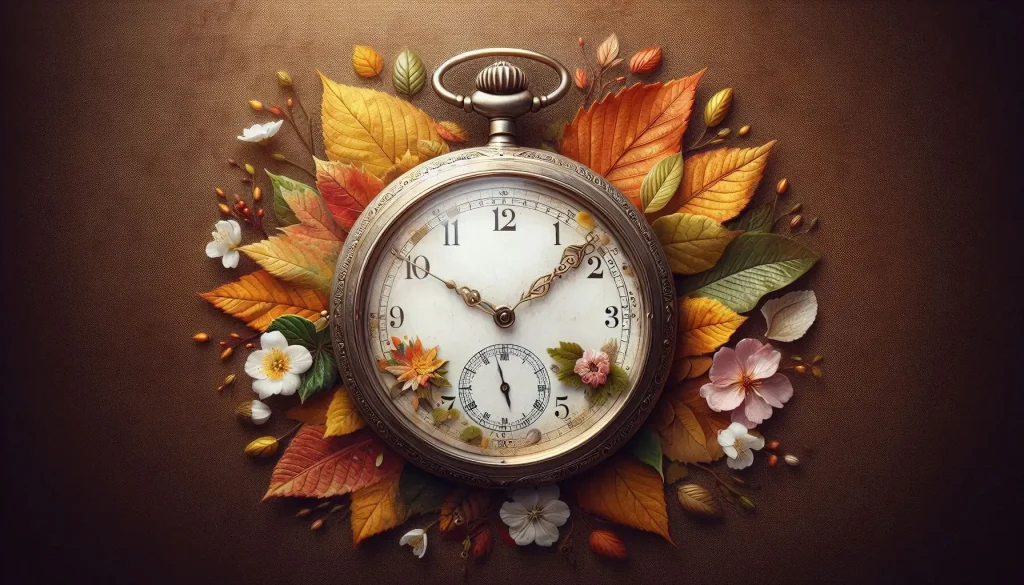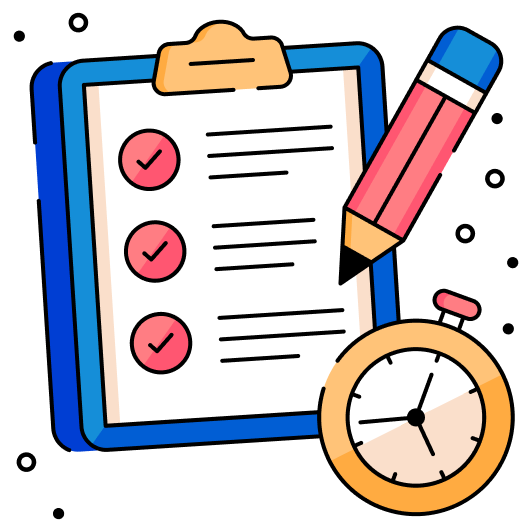Time Goes On – Complete Guide For Class 3 Math Chapter 13

Welcome to iPrep, your Learning Super App. Our learning resources for the chapter, Time Goes On in Mathematics for Class 3rd are designed to ensure you grasp this concept with clarity and perfection. Whether studying for an upcoming exam or strengthening your concepts, our engaging animated videos, practice questions and notes offer you the best-integrated learning with interesting explanations and examples.
Time is an essential part of our daily lives. From waking up in the morning to going to bed at night, everything we do is based on time. Understanding how to measure and keep track of time helps us stay organized and plan our activities effectively. In this chapter, we will explore the concept of time and how it shapes our routines, schedules, and special events. Let’s start the chapter by learning what the phrase “Time Goes On” means.
Meaning Of The Phrase “Time Goes On”
The phrase “Time Goes On” in CBSE Class 3rd Math, Chapter 13 refers to the continuous and unchanging nature of time. It means that time never stops—it keeps moving forward, regardless of what we do. We measure time in units like seconds, minutes, hours, days, and years to help us plan, organize, and track events in our lives. Understanding how time moves allows us to manage our daily routines, celebrate special occasions, and prepare for future events
Time is useful for planning activities, keeping track of important dates, and organizing our days. In this section, we’ll look at:
Weekdays, and holidays in the calendar each year, how to write dates in the birth certificate format, knowing the time, and scheduling daily tasks accordingly. You’ll learn how to read and write dates, improve your time management skills, and understand how our annual calendar fits in with the many holidays at the end of this session.
Days of the Week
The chapter Time Goes On starts with understanding the days of the week. There are 7 days in a week, and each day has its name. Here they are:
- Sunday
- Monday
- Tuesday
- Wednesday
- Thursday
- Friday
- Saturday
Important Points about Days of the Week
As mentioned in the Class 3 Math Chapter 13 “Time Goes On”, there are several important points about the days of the week that we all should know. Those include-
- The week begins on Sunday and ends on Saturday.
- We go to school from Monday to Friday.
- Saturday and Sunday are called the weekend. Most people get these days off to rest and spend time with their families.

Activity:
Ask students to write down what they do each day of the week. For example:
- On Monday, they go to school and attend their favorite subject.
- On Saturday, they may play with friends or help their parents with household work.
This helps students understand how time is structured in a week.
Festivals in the Year Calendar
Now, going further in the chapter time goes on, let’s talk about the yearly calendar. The year is made up of 12 months:
- January
- February
- March
- April
- May
- June
- July
- August
- September
- October
- November
- December
Each month has its special festivals or important days that we celebrate. Let’s look at some of the major festivals and their months.
Festivals in the Year
The chapter Time Goes On from class 3 math also covers the festivals in the year. These involve-
- January: New Year’s Day is celebrated on the 1st of January.
- March/April: Holi, the festival of colors, is usually celebrated in these months.
- August: Independence Day is celebrated on the 15th of August.
- October/November: Diwali, the festival of lights, is usually celebrated in October or November.
- December: Christmas is celebrated on the 25th of December.

Activity:
Ask students to look at a calendar and find out which month their favorite festival falls in. Encourage them to remember other important days like their birthday, national holidays, or any school events.
Writing Dates Format (Birth Certificate Example)
When we write dates, we use a specific format to make sure everyone understands the exact day, month, and year. The format is usually:
- DD/MM/YYYY, where:
- DD = Day
- MM = Month
- YYYY = Year
Let’s see how we write dates in real life, especially when recording something important, like a birth certificate. A birth certificate is an official document that shows the date you were born.
Example of Date Format:
- If you were born on the 10th of May, 2015, you would write your birth date as:
- 10/05/2015
- 10 stands for the day (10th day of the month).
- 05 stands for May (the 5th month of the year).
- 2015 is the year.
Activity:
Ask students to write down their own birth date in this format. You can also have them practice writing the birthdates of their family members or friends.
Telling Time
Telling time is one of the most important skills you’ll learn in life. Time helps us know when to wake up when to go to school, when to eat, and when to sleep.
The Clock
A clock has two main hands:
- The shorthand is the hour hand. It tells you which hour it is.
- The long hand is the minute hand. It tells you how many minutes have passed after an hour.
There are 24 hours in a day, but the clock only shows 12 hours. This is why the clock goes around twice in one day – once in the morning and once in the afternoon and night.

How to Read Time
Going further in class 3 math chapter 13 – Time Goes By, we’ll learn how to read time. Let’s take an example. If the short hand is pointing at 3 and the long hand is pointing at 12, it is 3:00. This means it is exactly 3 hours and no minutes have passed.
If the short hand is pointing at 4 and the long hand is pointing at 6, it is 4:30. This means it is 4 hours and 30 minutes.
Let’s practice more examples:
- If the short hand is at 7 and the long hand is at 9, it is 7:45.
- If the short hand is at 12 and the long hand is at 12, it is 12:00, also called noon or midnight depending on whether it’s day or night.
Activities According to Time
Every day, we follow a schedule based on time. Certain activities are done at specific times of the day. Let’s understand how time helps us organize our day as covered in Class 3 math chapter 13 – “Time Goes By”.
Daily Routine Example:
- 6:00 AM: Wake up and get ready for the day.
- 7:30 AM: Have breakfast.
- 8:00 AM: Go to school.
- 9:00 AM – 1:00 PM: School classes.
- 1:30 PM: Have lunch.
- 3:00 PM: Playtime.
- 7:00 PM: Dinner time.
- 9:00 PM: Go to bed.
Time helps us plan when to do each of these activities. If you don’t follow the time, you might miss important things like school or meals.
Activity:
Ask students to create a timetable of their own daily routine. Let them write down what they do from the time they wake up until they go to bed. This will help them understand how time is connected to their daily activities.
Time in Months, Weeks, and Days
As mentioned in the chapter “Time Goes On”, in a year, there are:
- 12 months
- 52 weeks
- 365 days (366 in a leap year)
Each week has 7 days, and each month has either 30 or 31 days, except for February, which has 28 days (29 days in a leap year).
Let’s take a look at how we can calculate the time passed using months, weeks, and days. For example:
- If today is the 1st of March and your birthday is on the 10th of April, you have to wait 1 month and 9 days for your birthday.
Important Time Words to Remember
Here are some important time-related words from the chapter “Time Goes On” that you should remember:
- Day: 24 hours
- Week: 7 days
- Month: Usually 30 or 31 days, except for February
- Year: 12 months or 365 days
- Morning: The time from sunrise until noon.
- Afternoon: The time from noon until evening.
- Evening: The time from sunset until night.
- Night: The time from sunset until the next sunrise.
Conclusion
We have studied about the days of the week and how they help us in planning our daily schedules in this chapter, “Time Goes On.”
The annual calendar’s festivals and the months in which they occur, how to write dates, especially for important paperwork like birth certificates, how to read a clock, tell the time, and plan your daily activities around it. Having a sense of time allows us to plan our days, enjoy special occasions, and remember significant occurrences. Always be aware of the time as you go about your day and remember how it keeps you organized. Keep practicing how to read the clock and remember the days, months, and important dates. Time is an essential part of our lives, and knowing how to use it will make your days much smoother.
In this chapter, CBSE Class 3rd Math, Chapter 13 – Time Goes On, we’ve explored the importance of time and how it shapes our daily lives. From understanding the days of the week and months of the year to learning how to write dates and tell time, these skills are essential for organizing our schedules.
By mastering this chapter, Time Goes On, you will be better equipped to manage your day-to-day activities, stay on top of important events, and celebrate festivals at the right time. Remember, as you continue to practice the concepts from CBSE Class 3rd Math, Chapter 13 – Time Goes On, time will no longer be a mystery but a helpful guide in your life. Keep learning, stay curious, and make the most of your time!
Practice questions on Chapter 13 - Time Goes On
Get your free Chapter 13 - Time Goes On practice quiz of 20+ questions & detailed solutions
Practice Now








